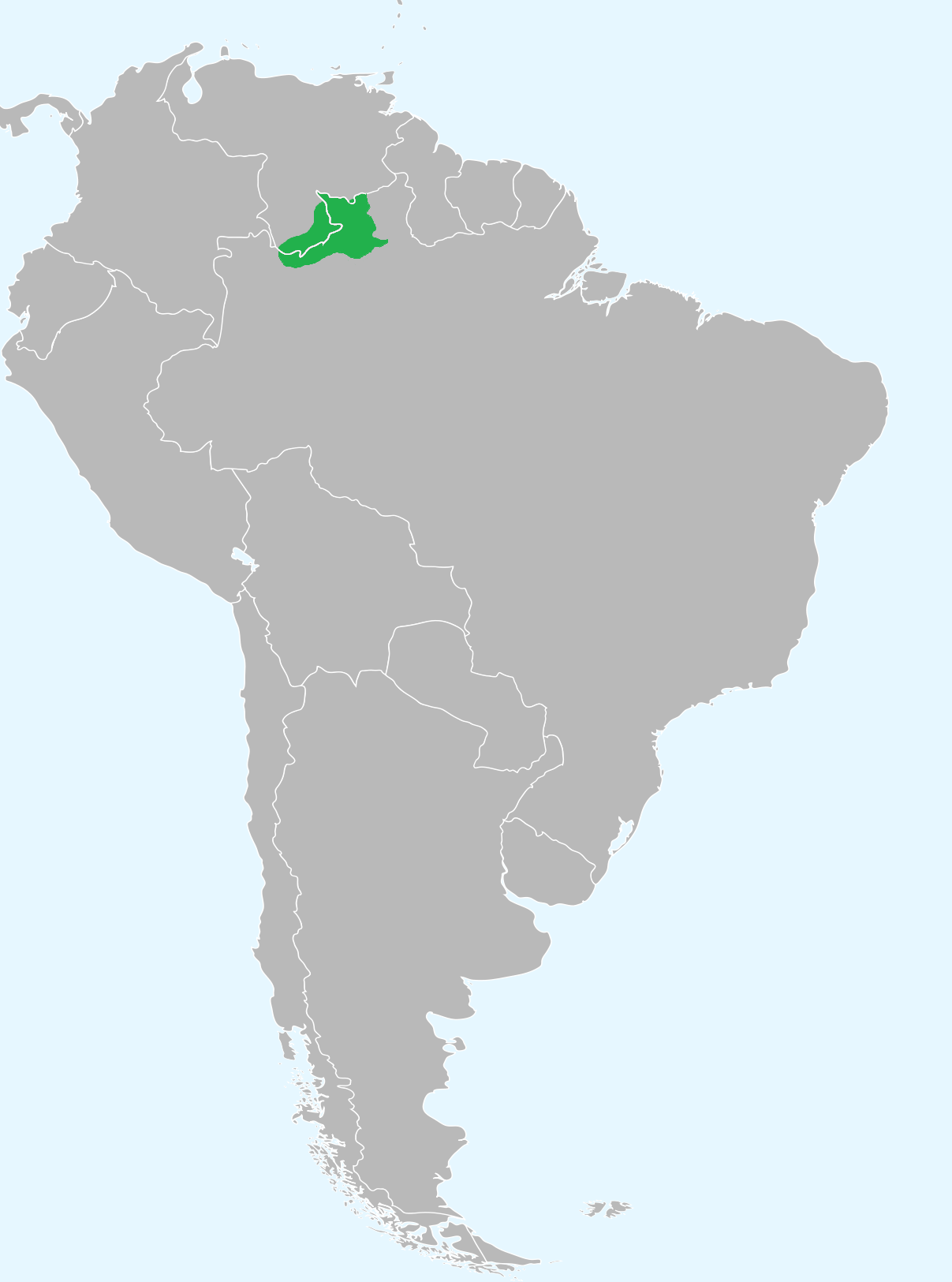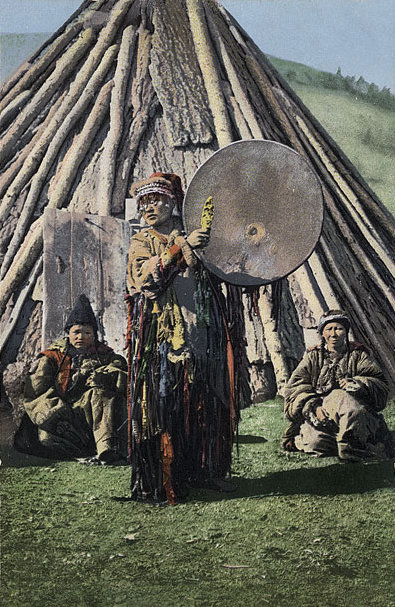|
Yąnomamö
The Yanomami, also spelled Yąnomamö or Yanomama, are a group of approximately 35,000 indigenous people who live in some 200–250 villages in the Amazon rainforest on the border between Venezuela and Brazil. Etymology The ethnonym ''Yanomami'' was produced by anthropologists based on the word , which, in the expression , signifies "human beings." This expression is opposed to the categories (game animals) and (invisible or nameless beings), but also (enemy, stranger, non-indigenous). According to ethnologist Jacques Lizot: ''Yanomamö'' and ''Yanomama'' are variant spellings. Supporters of the work on the tribe of anthropologist Napoleon Chagnon usually use ''Yanomamö''. Those who oppose his work or are neutral usually use ''Yanomami'' or ''Yanomama''. History The first report of the Yanomami is from 1654, when a Spanish expedition under Apolinar Diaz de la Fuente visited some Ye'kuana people living on the Padamo River. Diaz wrote: From approximately 1630 to 17 ... [...More Info...] [...Related Items...] OR: [Wikipedia] [Google] [Baidu] |
Yanomaman Languages
Yanomaman, also as Yanomam, Yanomáman, Yamomámi, and Yanomamana (also Shamatari, Shirianan), is a family of languages spoken by about 20,000 Yanomami, Yanomami people in southern Venezuela and northwestern Brazil (Roraima, Amazonas State, Brazil, Amazonas). Subdivision Ferreira et al. (2019) Ferreira, Machado & Senra (2019) divide the Yanomaman family into two branches, with six languages in total. * Yanomaman ** Ninam-Yanomam-Yaroamë *** ''Nimam'' **** Ninam language, Ninam (also known as Yanami, Yanami-Ninami) - 900 speakers in Venezuela and Brazil *** ''Yanomam-Yaroamë'' **** Waiká language, Yanomám (also known as Waiká) - 6,000 speakers mainly in Brazil **** Yanomamö language, Yanomamö (also known as Yanomame, Yanomami) - 20,000 speakers mainly in Venezuela **** Yaroamë language, Yaroamë (also known as Jawari) - 400 speakers in Brazil **** Yãnoma language, Yãnoma - 178 speakers in Brazil ** Sanumá *** Sanumá language, Sanumá (also known as Tsanuma, Sanima) ... [...More Info...] [...Related Items...] OR: [Wikipedia] [Google] [Baidu] |
Shamanism
Shamanism is a spiritual practice that involves a practitioner (shaman) interacting with the spirit world through altered states of consciousness, such as trance. The goal of this is usually to direct spirits or spiritual energies into the physical world for the purpose of healing, divination, or to aid human beings in some other way. Beliefs and practices categorized as shamanic have attracted the interest of scholars from a variety of disciplines, including anthropologists, archeologists, historians, religious studies scholars, philosophers, and psychologists. Hundreds of books and academic papers on the subject have been produced, with a peer-reviewed academic journal being devoted to the study of shamanism. Terminology Etymology The Modern English word ''shamanism'' derives from the Russian word , , which itself comes from the word from a Tungusic language – possibly from the southwestern dialect of the Evenki spoken by the Sym Evenki peoples, or from the ... [...More Info...] [...Related Items...] OR: [Wikipedia] [Google] [Baidu] |
Civil And Political Rights
Civil and political rights are a class of rights that protect individuals' political freedom, freedom from infringement by governments, social organizations, and private individuals. They ensure one's entitlement to participate in the civil and political life of society and the State (polity), state. Civil rights generally include ensuring peoples' physical and mental integrity, right to life, life, and safety, protection from discrimination, the right to privacy, the freedom of freedom of thought, thought, freedom of speech, speech, freedom of religion, religion, freedom of the press, press, freedom of assembly, assembly, and freedom of movement, movement. Political rights include natural justice (procedural fairness) in law, such as the rights of the accused, including the right to a fair trial; due process; the right to seek redress or a legal remedy; and rights of Participation (decision making), participation in civil society and politics such as freedom of association, th ... [...More Info...] [...Related Items...] OR: [Wikipedia] [Google] [Baidu] |
Nonprofit Organization
A nonprofit organization (NPO), also known as a nonbusiness entity, nonprofit institution, not-for-profit organization, or simply a nonprofit, is a non-governmental (private) legal entity organized and operated for a collective, public, or social benefit, as opposed to an entity that operates as a business aiming to generate a Profit (accounting), profit for its owners. A nonprofit organization is subject to the non-distribution constraint: any revenues that exceed expenses must be committed to the organization's purpose, not taken by private parties. Depending on the local laws, charities are regularly organized as non-profits. A host of organizations may be non-profit, including some political organizations, schools, hospitals, business associations, churches, foundations, social clubs, and consumer cooperatives. Nonprofit entities may seek approval from governments to be Tax exemption, tax-exempt, and some may also qualify to receive tax-deductible contributions, but an enti ... [...More Info...] [...Related Items...] OR: [Wikipedia] [Google] [Baidu] |
Non-governmental Organization
A non-governmental organization (NGO) is an independent, typically nonprofit organization that operates outside government control, though it may get a significant percentage of its funding from government or corporate sources. NGOs often focus on humanitarian or social issues but can also include clubs and associations offering services to members. Some NGOs, like the World Economic Forum, may also act as lobby groups for corporations. Unlike international organizations (IOs), which directly interact with sovereign states and governments, NGOs are independent from them. The term as it is used today was first introduced in Article 71 of the UN Charter, Article 71 of the newly formed United Nations Charter in 1945. While there is no fixed or formal definition for what NGOs are, they are generally defined as nonprofit entities that are independent of governmental influence—although they may receive government funding. According to the United Nations Department of Global Communic ... [...More Info...] [...Related Items...] OR: [Wikipedia] [Google] [Baidu] |
Branco River
The Branco River (; Engl: ''White River'') is the principal affluent of the Rio Negro from the north. Basin The river drains the Guayanan Highlands moist forests ecoregion. It is enriched by many streams from the Tepui highlands which separate Venezuela and Guyana from Brazil. Its two upper main tributaries are the Uraricoera and the Takutu. The latter almost links its sources with those of the Essequibo; during floods headwaters of the Branco and those of the Essequibo are connected, allowing a level of exchange in the aquatic fauna (such as fish) between the two systems. The Branco flows nearly south, and finds its way into the Negro through several channels and a chain of lagoons similar to those of the latter river. It is long, up to its Uraricoera confluence. It has numerous islands, and, above its mouth, it is broken by a bad series of rapids. Discharge Average, minimum and maximum discharge of the Branco River at near mouth. Period from 1998 to 2022. Water ... [...More Info...] [...Related Items...] OR: [Wikipedia] [Google] [Baidu] |
Gold Rush
A gold rush or gold fever is a discovery of gold—sometimes accompanied by other precious metals and rare-earth minerals—that brings an onrush of miners seeking their fortune. Major gold rushes took place in the 19th century in Australia, Greece, New Zealand, Brazil, Chile, South Africa, the United States, and Canada while smaller gold rushes took place elsewhere. In the 19th century, the wealth that resulted was distributed widely because of reduced migration costs and low barriers to entry. While gold mining itself proved unprofitable for most diggers and mine owners, some people made large fortunes, and merchants and transportation facilities made large profits. The resulting increase in the world's gold supply stimulated global trade and investment. Historians have written extensively about the mass migration, trade, colonization, and environmental history associated with gold rushes. Gold rushes were typically marked by a general buoyant feeling of a "free-for-al ... [...More Info...] [...Related Items...] OR: [Wikipedia] [Google] [Baidu] |
Roraima
Roraima ( ) is one of the 26 states of Brazil. Located in the country's North Region, it is the northernmost and most geographically and logistically isolated state in Brazil. It is bordered by the state of Pará to the southeast, Amazonas to the south and west, Venezuela to the north and northwest, and Guyana to the east. The state covers an area of approximately , slightly larger than Belarus, being the fourteenth largest Brazilian state by area. The city of Boa Vista is the capital and largest city in the state, and is the only capital in the country located entirely in the Northern Hemisphere. Antônio Denarium, a member of the conservative Progressistas party, has been the governor of the state since 2019. Roraima is the least populous state in Brazil, with an estimated population of 631,181 inhabitants as of 2020. It is also the state with the lowest population density in Brazil, with 2.01 inhabitants per square kilometre. Its economy, based mainly on the tertiar ... [...More Info...] [...Related Items...] OR: [Wikipedia] [Google] [Baidu] |
Salesians Of Don Bosco
The Salesians of Don Bosco (SDB), formally known as the Society of Saint Francis de Sales (), is a religious congregation of men in the Catholic Church, founded in 1859 by the Italian priest John Bosco to help poor and migrant youth during the Industrial Revolution. The congregation was named after Francis de Sales, a 17th-century bishop of Geneva. The Salesians' charter describes the society's mission as "the Christian perfection of its associates obtained by the exercise of spiritual and corporal works of charity towards the young, especially the poor, and the education of boys to the priesthood". Its associated women's institute is the Salesian Sisters of Don Bosco, while the lay movement is the Association of Salesian Cooperators. History In 1845 Don John Bosco (" Don" being a traditional Italian honorific for priest) opened a night school for boys in Valdocco, now part of the municipality of Turin in Italy. In the following years, he opened several more schools, and ... [...More Info...] [...Related Items...] OR: [Wikipedia] [Google] [Baidu] |
Society Of Jesus
The Society of Jesus (; abbreviation: S.J. or SJ), also known as the Jesuit Order or the Jesuits ( ; ), is a religious order of clerics regular of pontifical right for men in the Catholic Church headquartered in Rome. It was founded in 1540 by Ignatius of Loyola and six companions, with the approval of Pope Paul III. The Society of Jesus is the largest religious order in the Catholic Church and has played significant role in education, charity, humanitarian acts and global policies. The Society of Jesus is engaged in evangelization and apostolic ministry in 112 countries. Jesuits work in education, research, and cultural pursuits. They also conduct retreats, minister in hospitals and parishes, sponsor direct social and humanitarian works, and promote ecumenical dialogue. The Society of Jesus is consecrated under the patronage of Madonna della Strada, a title of the Blessed Virgin Mary, and it is led by a superior general. The headquarters of the society, its general ... [...More Info...] [...Related Items...] OR: [Wikipedia] [Google] [Baidu] |
New Tribes Mission
Ethnos360, formerly known as New Tribes Mission (NTM), is an international, theologically evangelical Christian mission organization based in Sanford, Florida, United States. Ethnos360 sends missionaries from local churches around the world to Latin America, West Africa, Southeast Asia and the Arctic. New Tribes Mission is also a member of the Forum of Bible Agencies International. Focus and beliefs The mission's focus is on groups where no translation of the Bible exists. When such a group is identified, Ethnos360 first attempts to make contact and establish a relationship. Then, missionaries are sent to learn the language and the culture of the native people, while further developing relationships and providing humanitarian aid. The missionaries translate biblical literature into the indigenous language, as well as teach natives how to read and write in their own language. The professed goal, however, is to establish fully functioning churches that operate independently ... [...More Info...] [...Related Items...] OR: [Wikipedia] [Google] [Baidu] |







